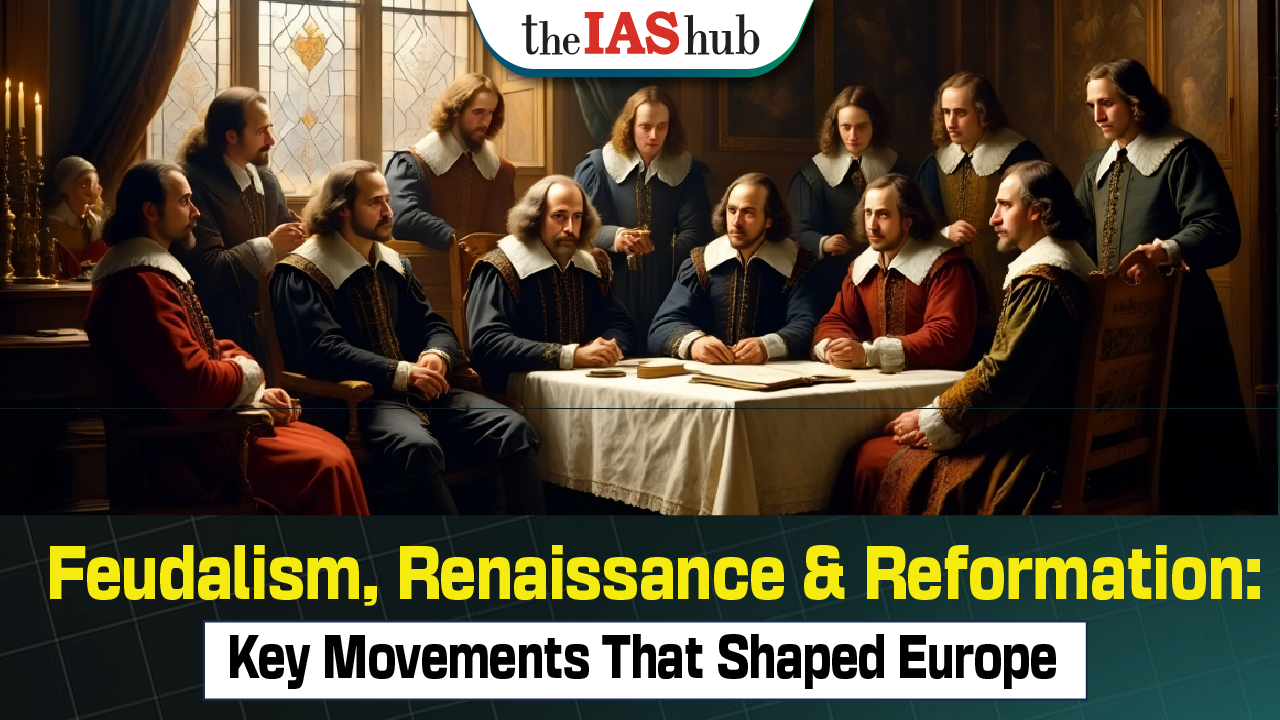Explore how Feudalism structured medieval Europe, how the Renaissance sparked cultural rebirth and innovation, and how the Reformation redefined Christianity—shaping modern European society and thought.


Feudalism as a political and socio-economic system developed in Europe during the Middle Ages characterized by a hierarchical system of lords and vassals, where land was granted in exchange for military service and loyalty.

|
Positive |
Negative |
System of guilds was developed. |
|
The Modern Era witnessed a period of significant cultural, social, and political change in Europe (beginning with Italy) spanning from 14th century until the 17th century. Its main features were the Renaissance and Reformation movements that had a profound impact on the course of European history.

Renaissance movement was characterized by a renewed interest in classical knowledge, humanism, artistic innovation, and scientific exploration, which had profound impact on various aspects of human civilization.
The Reformation was a religious movement that began in the 16th century leading to the division of Western Christianity into Protestant and Catholic factions, rejecting the authority of the Catholic Church.

Reformation was indeed a significant religious movement that emerged in the 16th century and profoundly shaped the course of Western Christianity. Triggered by various theological, political, and social factors, the Reformation brought about sweeping changes to the religious landscape of Europe and led to the establishment of Protestantism as a distinct branch of Christianity.


Refine your answer writing skills and elevate your UPSC preparation with personalized support and expert feedback.
Fill out the form to get started with the program or any other enquiries !








Are you dreaming of becoming an IAS officer? Then, IAShub can be your best guide. It is one of the Best IAS Coaching in Delhi. Many students who want to clear the UPSC exam join IAShub for learning. The institute gives both online and offline classes. Their teachers are experienced and helpful. They easily explain every topic. Students also get notes, tests, and tips to do well in the exam.
IAShub is in Delhi and is trusted by many UPSC students. It offers coaching for every part of the UPSC exam – Prelims, Mains, and Interview. The classes are simple and easy to understand. The teachers are experts and guide students in the right way. IAShub is also known for its helpful notes, test series, and answer-writing practice. IAShub is the best coaching in Delhi and also gives UPSC Online Classes. This helps students from any place in India to learn. The online classes are live and also recorded. So, students can watch them anytime. These classes cover the full UPSC syllabus.
Here are some important services provided by IAShub:
The UPSC Civil Services Exam has three parts:
This exam is tough, but with the right guidance, it becomes easy to manage. Students must study smart and stay regular.
IAShub supports students from the beginning to the end. It gives the right books, tests, and notes. The classes are easy to follow, and the teachers are always ready to help. Students get personal doubt sessions too. The test series and answer checking help students learn where they need to do better. Also, free study materials save time and money.
IAShub also guides students during the final stage – the interview. Experts take mock interviews and give useful tips. This full support makes IAShub one of the best IAS coaching in Delhi.